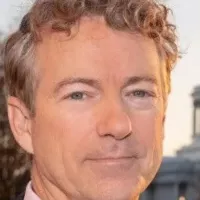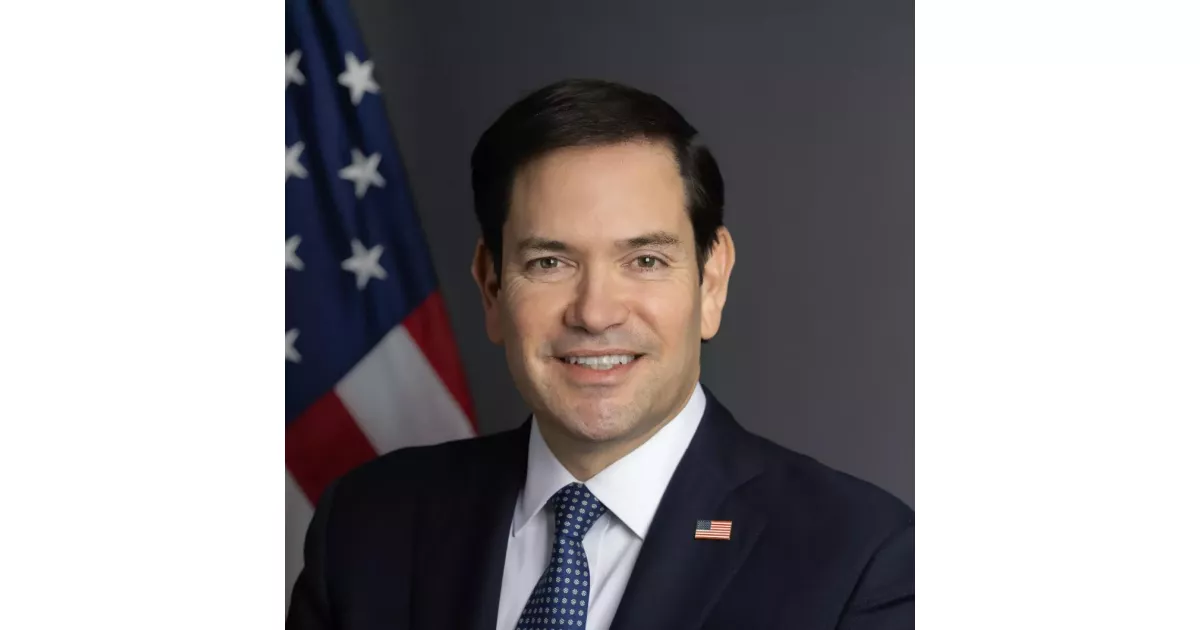A closer look at the most debated and controversial moments involving Marco Rubio.
Marco Rubio is an American politician, attorney, and diplomat. He is currently serving as the 72nd United States Secretary of State (since 2025), and also serves as the acting National Security Advisor and acting Archivist of the United States. A member of the Republican Party, Rubio previously represented Florida in the U.S. Senate from 2011 to 2025.
1956: Rubio's Parents left Cuba
In 2011, The Washington Post reported that Rubio's parents left Cuba in 1956, during the Batista regime.
1959: Rubio's False Statements about Parents
In 2011, The Washington Post reported that Rubio's previous statements that his parents were forced to leave Cuba in 1959 (after Fidel Castro came to power) were falsehoods.
2003: Supported Invasion of Iraq
In 2003, Rubio supported the invasion of Iraq, aligning with an interventionist foreign policy approach.
January 2005: Credit Card Statements Released
In January 2005, Marco Rubio's credit card statements were released to show eight personal charges totaling $7,243.74, which were later reimbursed.
October 2006: Credit Card Statements Released
In October 2006, Marco Rubio's credit card statements were released to show eight personal charges totaling $7,243.74, which were later reimbursed.
2010: Report on Spending Requests
A 2010 report by the Tampa Bay Times and Miami Herald said that some of Rubio's spending requests dovetailed with his personal interests.
2010: American Express Card Charges Issue During Senate Campaign
In 2010, during Marco Rubio's Senate campaign, the media and political opponents raised questions about charges made on his Republican Party of Florida American Express card during his time as House speaker.
October 2011: Washington Post Report on Family History
In October 2011, The Washington Post reported that Rubio's statements about his parents leaving Cuba in 1959 were false, as they left in 1956.
2012: Ethics Commission Clears Rubio of Wrongdoing
In 2012, the Florida Commission on Ethics cleared Marco Rubio of wrongdoing regarding his use of the party-issued credit card, but noted a "level of negligence" for not using his personal MasterCard.
2013: Republican response to Obama's 2013 State of the Union Address
In 2013, Rubio was chosen to deliver the Republican response to President Obama's State of the Union Address, marking the first time it was delivered in both English and Spanish. His stance against defense sequestration was countered by Senator Rand Paul's call for the sequester to be carried out.
2013: Rubio's Immigration Reform Support Leads to Tea Party Disapproval
Marco Rubio's 2013 support for comprehensive immigration reform legislation led to a decline in the Tea Party's support for him.
November 2015: Rubio Releases Credit Card Statements
In November 2015, during his presidential campaign, Marco Rubio released his party credit card statements from January 2005 through October 2006, revealing personal charges that he had reimbursed.
November 2015: Response to Paris Terrorist Attacks
In November 2015, following the Paris terrorist attacks, Rubio stated that the U.S. should accept no more Syrian refugees because background checks could not be effectively conducted.
February 2016: Rubio calls Trump a "con artist"
In February 2016, during the Republican primary campaign, Marco Rubio criticized Donald Trump, calling him a "con artist" and saying that Trump is "wholly unprepared to be president of the United States".
March 2016: Opposed Merrick Garland's Supreme Court Nomination
In March 2016, Rubio opposed President Obama's nomination of Merrick Garland to the Supreme Court, citing that a nominee should not be considered in the last year of a president's term.
June 2016: Rubio Reaffirms Concerns About Trump's Access to Nuclear Codes
In June 2016, after Donald Trump became the presumptive GOP nominee, Marco Rubio reaffirmed his February 2016 comments that we must not hand "the nuclear codes of the United States to an erratic individual".
October 7, 2016: Rubio Condemns Trump's 'Access Hollywood' Comments
Following the October 7, 2016, Donald Trump Access Hollywood controversy, Marco Rubio wrote that "Donald's comments were vulgar, egregious & impossible to justify. No one should ever talk about any woman in those terms, even in private."
2016: Harsh Criticism During Republican Primaries
During the Republican primaries in the 2016 presidential election, Rubio and Donald Trump harshly criticized each other, marking a period of intense political rivalry.
2016: Views on interrogation techniques for captured terrorists
In 2016, Rubio stated that the U.S. should extract all possible information from captured terrorists and avoid revealing interrogation techniques to the enemy.
September 2017: Defense of Trump's decision to rescind DACA
In September 2017, Rubio defended Trump's decision to rescind the Deferred Action for Childhood Arrivals (DACA) program, arguing that it was "unconstitutional".
February 2018: Defended Accepting NRA Contributions
In February 2018, at a CNN town hall following the Stoneman Douglas High School shooting, Rubio defended his record of accepting contributions from the National Rifle Association (NRA). He argued that the NRA's influence stemmed from the millions of people who agreed with their agenda, not just from monetary contributions.
March 2018: Defended Citizenship Question on 2020 Census
In March 2018, Rubio defended the Trump administration's decision to add a citizenship question to the 2020 census, despite concerns from experts and fellow Republicans that it could lead to an undercount of the population.
August 28, 2018: Urged Sanctions Against Chinese Officials
On August 28, 2018, Rubio, along with 16 other members of Congress, urged the U.S. to impose sanctions under the Global Magnitsky Act against Chinese officials responsible for human rights abuses against the Uyghur Muslim minority in Xinjiang.
2018: Reversed Position on Climate Change
In 2018, Rubio reversed his previous position on climate change, stating that humans contribute to the increase in greenhouse gases and that sea levels are rising at a measurable rate. Previously, he had rejected the scientific consensus on climate change.
2019: Defense of Trump's decision to host the G7 summit at Trump National Doral Miami
In 2019, Rubio defended Trump's decision to host the 46th G7 summit at the Trump National Doral Miami, arguing that it would be beneficial for local businesses.
April 2020: Attempt to Stop Obamacare Defeated
In April 2020, the U.S. Supreme Court voted 8–1 against Rubio's attempt to stop the Affordable Care Act (Obamacare).
July 13, 2020: Chinese government sanctions Rubio for interfering in China's internal affairs
On July 13, 2020, the Chinese government sanctioned Rubio for "interfering in China's internal affairs" by condemning human rights abuses in Xinjiang.
August 10, 2020: Chinese government sanctions Rubio for "behaving badly on Hong Kong-related issues"
On August 10, 2020, the Chinese government sanctioned Rubio and 10 other Americans for "behaving badly on Hong Kong-related issues".
September 2020: Applauded Amy Coney Barrett's Nomination
In September 2020, Rubio applauded Trump's nomination of Amy Coney Barrett to the Supreme Court after Justice Ruth Bader Ginsburg's death, a reversal of his 2016 stance.
2020: Sanctioned by Chinese Government
In 2020, the Chinese government sanctioned Marco Rubio twice, and he is banned from entering China.
2020: Defended Citizenship Question on 2020 Census
In March 2018, Rubio defended the Trump administration's decision to add a citizenship question to the 2020 census, despite concerns from experts and fellow Republicans that it could lead to an undercount of the population.
2022: Condemned 2022 Winter Olympics in China
In 2022, Rubio condemned holding the 2022 Winter Olympics in China, citing the country's "evil, genocidal regime" and vowed to prevent future Olympics from being held there.
January 23, 2025: Rubio Freezes Passport Applications Requesting 'X' Sex Markers
On January 23, 2025, Marco Rubio instructed State Department staff to freeze any passport applications that requested "X" sex markers, in compliance with Executive Order 14168, leading to confusion and held documents for transgender applicants.
January 24, 2025: Rubio Enacts Freeze on U.S. Foreign Aid
On January 24, 2025, Marco Rubio enacted an unprecedented 90-day freeze on all U.S. foreign aid, with some exceptions, as per President Trump's executive order, which shut down many of USAID's humanitarian, development, and security programs worldwide.
February 2025: Rubio Shuts Down State Department's Disinformation Office
In February 2025, Marco Rubio announced the closure of the State Department's Counter Foreign Information and Manipulation and Interference Office, citing wasted millions of dollars and censorship.
February 2025: Rubio Supports U.S. Takeover of Gaza Strip
In February 2025, Marco Rubio supported Trump's proposal that the U.S. take over the Gaza Strip, saying that the U.S. "stands ready to lead and Make Gaza Beautiful Again".
March 7, 2025: Rubio Clashes with Elon Musk During Cabinet Meeting
On March 7, 2025, Marco Rubio reportedly clashed with Elon Musk during a White House cabinet meeting, with Musk criticizing Rubio for not firing State Department staff and Rubio angered by Musk's dismantling of USAID.
March 2025: Rubio Sends Arms Shipment to Israel
In March 2025, Marco Rubio bypassed Congress by issuing an emergency declaration to send Israel a $4 billion shipment of arms.
May 2025: Rubio Announces Visa Restrictions for Chinese Students
In May 2025, Marco Rubio announced the U.S. government would "aggressively revoke visas for Chinese students, including those with connections to the Chinese Communist Party or studying in critical fields" and increase scrutiny of future visa applications from China and Hong Kong.
October 2025: Rubio Condemns Israeli Sovereignty Bill
In October 2025, Marco Rubio condemned the Knesset's bill to apply Israeli sovereignty to all West Bank settlements as "counterproductive" to Trump's Gaza peace plan.
Mentioned in this timeline

Donald John Trump is an American politician media personality and...
Fox News Channel FNC is a conservative American news and...
Ukraine is a large country in Eastern Europe second in...
The Affordable Care Act ACA also known as Obamacare is...

Rand Paul is an American politician and ophthalmologist He has...

Joe Biden a member of the Democratic Party served as...
Trending

2 months ago Russian Drone Attack Ignites Gas Tanker Blaze Near NATO Border After US Gas Deal

Emilio Nava is an American professional tennis player He reached a career-high ATP singles ranking of No on July and...
On May a mass shooting occurred at Robb Elementary School in Uvalde Texas Salvador Ramos an -year-old former student killed...

3 months ago Alexandrova Reaches Ningbo Final, Set to Face Rybakina After Shnaider Victory

6 months ago Cameron Norrie faces Mattia Bellucci in Wimbledon 2025; live updates and scores.

7 months ago Paula Badosa faces tough match against Eva Lys at WTA Berlin 2025.
Popular

Carson Beck is an American college football quarterback currently playing...
Curt Cignetti is an American college football coach currently the...

XXXTentacion born Jahseh Dwayne Ricardo Onfroy was a controversial yet...
WWE Raw a professional wrestling television program by WWE airs...

Stranger Things created by the Duffer Brothers is a popular...

Kristi Noem is an American politician who has served as...
